Following a neurologic injury, some people experience a leg that feels stiff, heavy, or both. This can make walking difficult. In this video, you will learn the best exercise routine to relearn how to lift the leg more efficiently and minimize the sensation of having a “heavy leg”.
What causes the leg to feel stiff?
Damage to the neurologic system can cause two problems that significantly impact the body’s ability to move. These are spasticity and abnormal synergy patterns. Spasticity, an involuntary muscle contraction, in the quadriceps (muscles that straighten the knee) can make the knee difficult to bend while walking. This can cause the leg to feel like it is stuck to the ground. An abnormal synergy pattern can also cause the knee to want to stay locked out straight. Both of these movement problems can make the leg feel heavy and make walking difficult
What are the best exercises for a stiff or heavy leg?
The best place to start is lying down with the knees bent. Starting with the knees bent will make it easier to lift the leg. Lying down, can help the body to stay more relaxed and may minimize the impact of the abnormal muscle synergy and spasticity noted above.
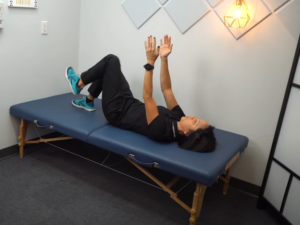
Next, try starting with the leg starting from a more extended position.
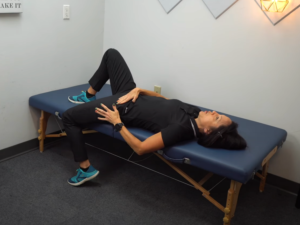
If that is too difficult, you might want to try using the core max to assist
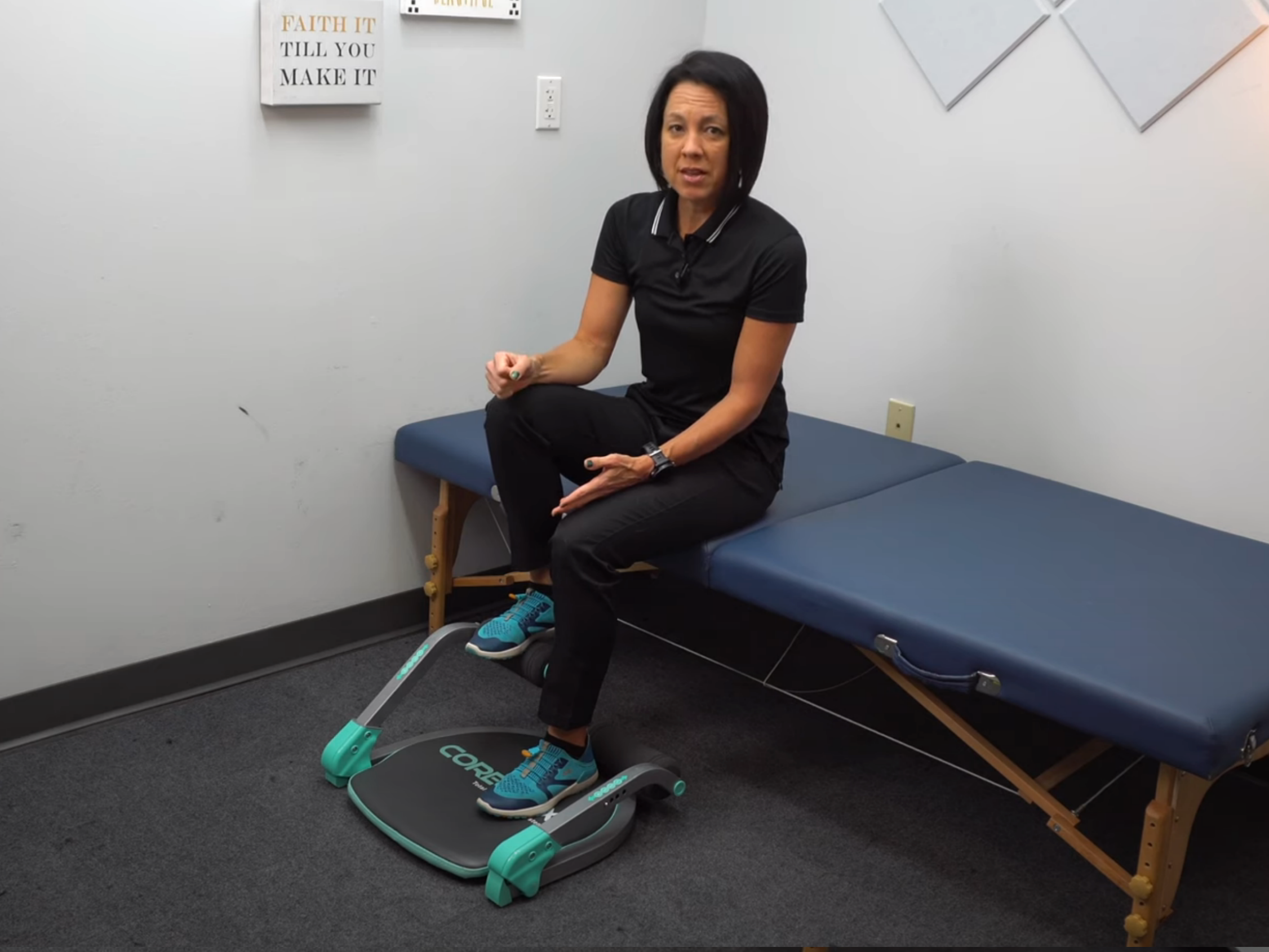
Next, you can move on to trying to bring the leg forward in standing. Use something under your foot to make it easier to bring forward. I recommend a mini skateboard

Once you can bring the leg straight forward, try adding a step
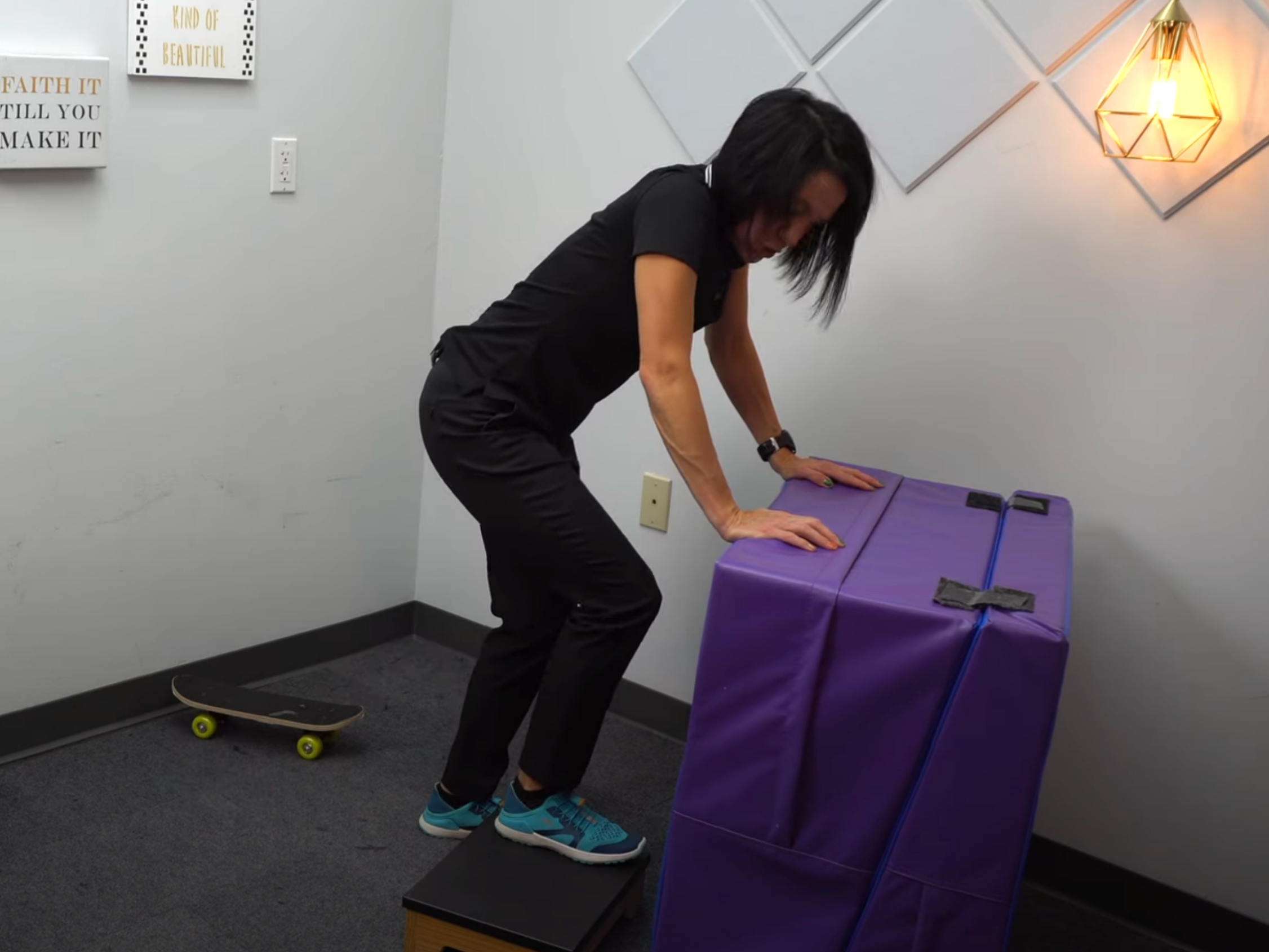
Once you can lift the leg up onto a small step, try working the end range of hip flexion
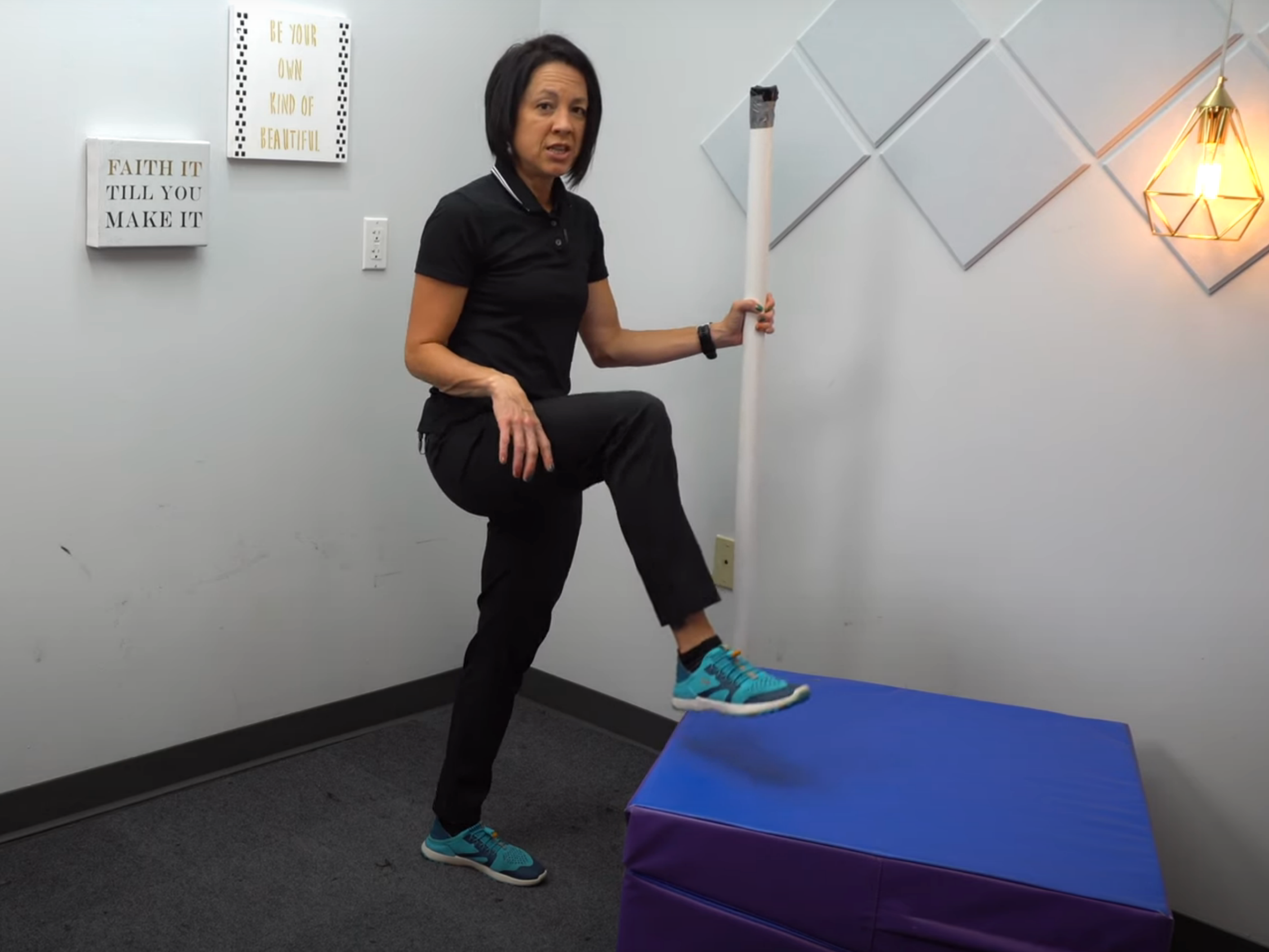
One final recommendation that I have is to use a tool to help you work on lifting the leg while walking. A resistance band belt can significantly help to “normalize” your walking pattern if you have a heavy leg.
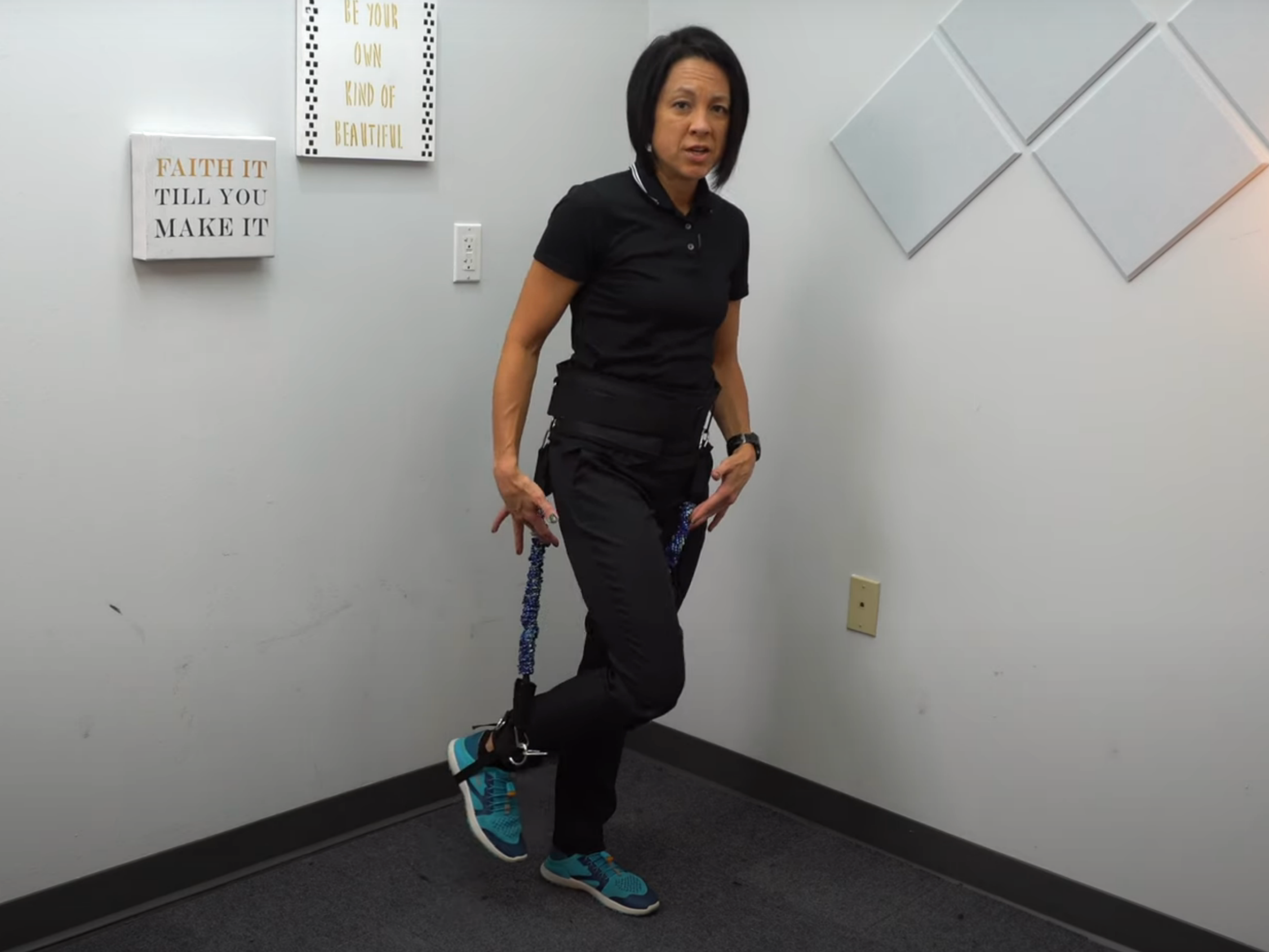
Other articles you may be interested in:
Exploring the Connection Between Cortisol, Stress, and Overall Health
The “Longevity” game is not about living long, but living “well”. And the hidden player calling the shots might be cortisol, aka the stress hormone. As stress permeates our lives, its effects on our overall health become increasingly apparent. In this article we will...
Polyphenols: Health Benefits and Food Sources
I have long believed that a diet of fruits, vegetables, and seeds had a positive impact on overall health. A great example are studies looking at people who eat a Mediterranean diet (diet with a high concentration of fruits, vegetables and legumes). The reason might...
The Bleeding Edge: Film Review
We now live in an era where there is a medical device for most problems. Case and point, we can now replace a “degenerating hip”, fix a “dysfunctional heart”, prevent an unwanted pregnancy, “lift” a falling organ, drain unnecessary fluid from the central nervous...
Antioxidants: A beginners guide to understanding these powerful chemicals
Cardiovascular disease and cancer are responsible for 44% of deaths in the US. 6.2 million Americans are living with Alzheimer’s disease and nearly 1 million with Parkinson’s disease. All of these diseases have one thing in common, oxidative stress. But there is...
Turmeric: Health Benefits and Food Sources
There is a growing interest in people wanting to take control of their health and “longevity”. With this in mind, curiosity is growing surrounding the best “diet” for overall health and disease prevention. And of course, the jury is still out on whether or not there...
What sugar really does in the body
Is sugar really "bad"? I know most of us have been told that this is the evil of all evils when it comes to "health". But not so fast. Not all sugar is created equal. Sugar is one "type" of carbohydrate. And yes, some carbohydrates might not be optimal in some...
A Guide to Magnesium: The Mineral That Can Do a 180 on Your Health
Magnesium is an essential nutrient required to maintain overall health. However, nearly half of Americans don’t meet daily magnesium intake recommendations. Magnesium deficiency is associated with several diseases. It is vital to ensure your food intake boosts the...
Managing Stress with Diabetes Made Easy: Tips That Tip the Scale in Your Favor
Over 537 million people around the world live with diabetes. The condition affects a whopping 10.5% of the adult population, and there’s no denying how difficult it can be to manage it. One day, you’re living life to the fullest—eating your favorite cake, regularly...
Mindfulness: Health Benefits and Getting Started
Understanding Mindfulness, Its Benefits, and How To Get Started Mindfulness. We hear this word so often that it’s easy to dismiss it as the latest New Age fad. But before dispensing with the idea altogether, consider that mindfulness-based cognitive therapy has been...
The Minimalist: Less Is Now Review
In a world overwhelmed by the ceaseless noise of consumerism and material excess, there is a growing trend of people transitioning toward the perceived gateway to profound well-being. Minimalism, is fast becoming an appealing lifestyle that adopters believe has some...











